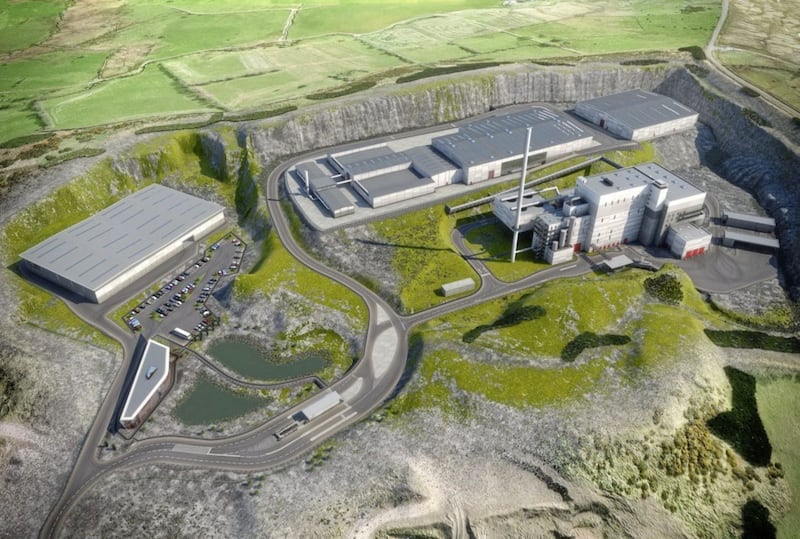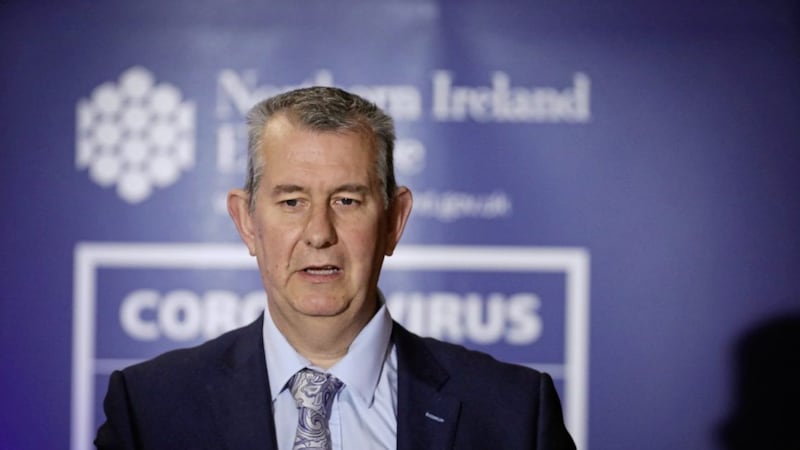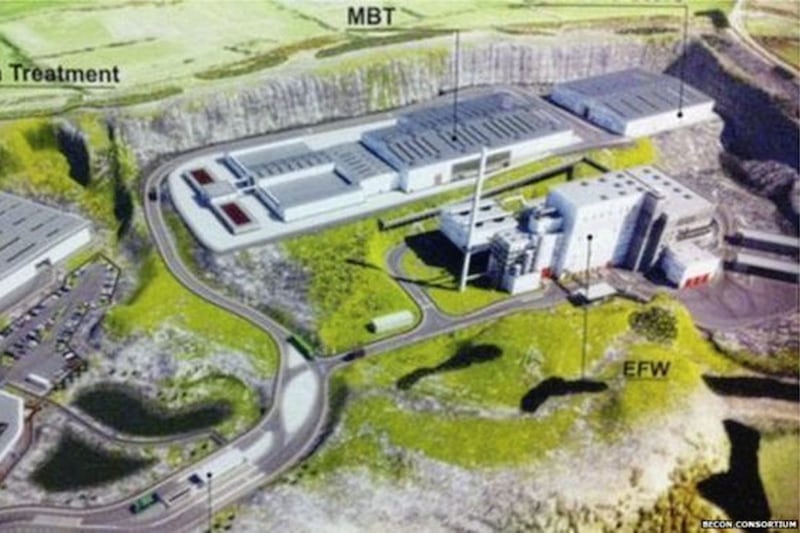ENVIRONMENT Minister Edwin Poots has raised fresh questions over the need for a £240 million waste incinerator near Mallusk.
The DUP Minister said the impact of Covid-19 and his desire to achieve more ambitious recycling targets will reduce the amount of household waste produced in the north.
In a statement to The Irish News, Mr Poots suggested that other methods of reducing waste should be exhausted first.
His comments came in direct response to claims the north is facing “a waste crisis” if the incinerator is not built.
Arc21, the waste management body for six councils across Antrim and Down, said the facility is necessary to cut the significant volumes of household rubbish going to landfill and overseas every year.
It has also warned that the failure to build it will have ramifications for the circular economy.
Close to one million tonnes of waste was collected by the north’s 11 councils in the 2019/20 financial year, 88 per cent of it from households.
More than half (52 per cent) of the household waste was recycled, with 23.7 per cent sent to landfill. Most of the remainder went to waste-to-energy plants.
Arc21’s proposal would see black bin waste taken from the six councils taken to the former quarry site at Hightown.
The body's application is back in the planning system six years after it was first proposed, with the final decision due to come before Infrastructure Minister Nichola Mallon.
During the latest process, the Department for Infrastructure (DfI) sought an updated ‘statement of need’ from the Environment Minister.
Mr Poots has previously questioned the need for the incinerator. In June he told the BBC he was "currently not convinced" of the project but was "convincible".
In his statement to The Irish News, the Environment Minister cited the impact of Covid-19 on the economy, adding there are “enormous uncertainties” surrounding economic forecasts.
“This is likely to lead to a reduction in the future waste arisings predicted prior to Covid,” he said.
“In addition, I want to achieve more ambitious recycling targets which should further reduce the capacity for future residual waste treatment.”

Mr Poots said his department has engaged with Strategic Investment Board to model future waste levels in light of the economic impact and his desire for more recycling
“This will provide the evidence to understand the future need, allow reasoned decision-making and ensure value for money for ratepayers.”
The DUP Minister said he is driving forward with initiatives aimed at waste prevention and recycling, adding that the latest statistics show increasing rates of recycling.
“At the minute it is still difficult to avoid all residual waste and so waste to energy will continue to have a role to play,” he said.
“But we must exhaust other reuse, recycling and treatment options to maximise the embedded value of these materials to realise environmental and economic benefits.
“I am continuing to engage with businesses to understand other technologies and how they can provide solutions for better sustainable material use in Northern Ireland.”
Arc21’s chief executive Tim Walker offered a less optimistic picture of waste in Northern Ireland.
He said that 400,000 tonnes a year of black bin rubbish is landfilled or exported every year, warning those options may not be available within a decade.
He argued the incinerator will remove “the potential risk of a systemic failure in household waste services”.
“There is chronic under-capacity in the sector to properly treat waste locally and failure to address this gap will precipitate a crisis with financial and environmental consequences,” he added.








